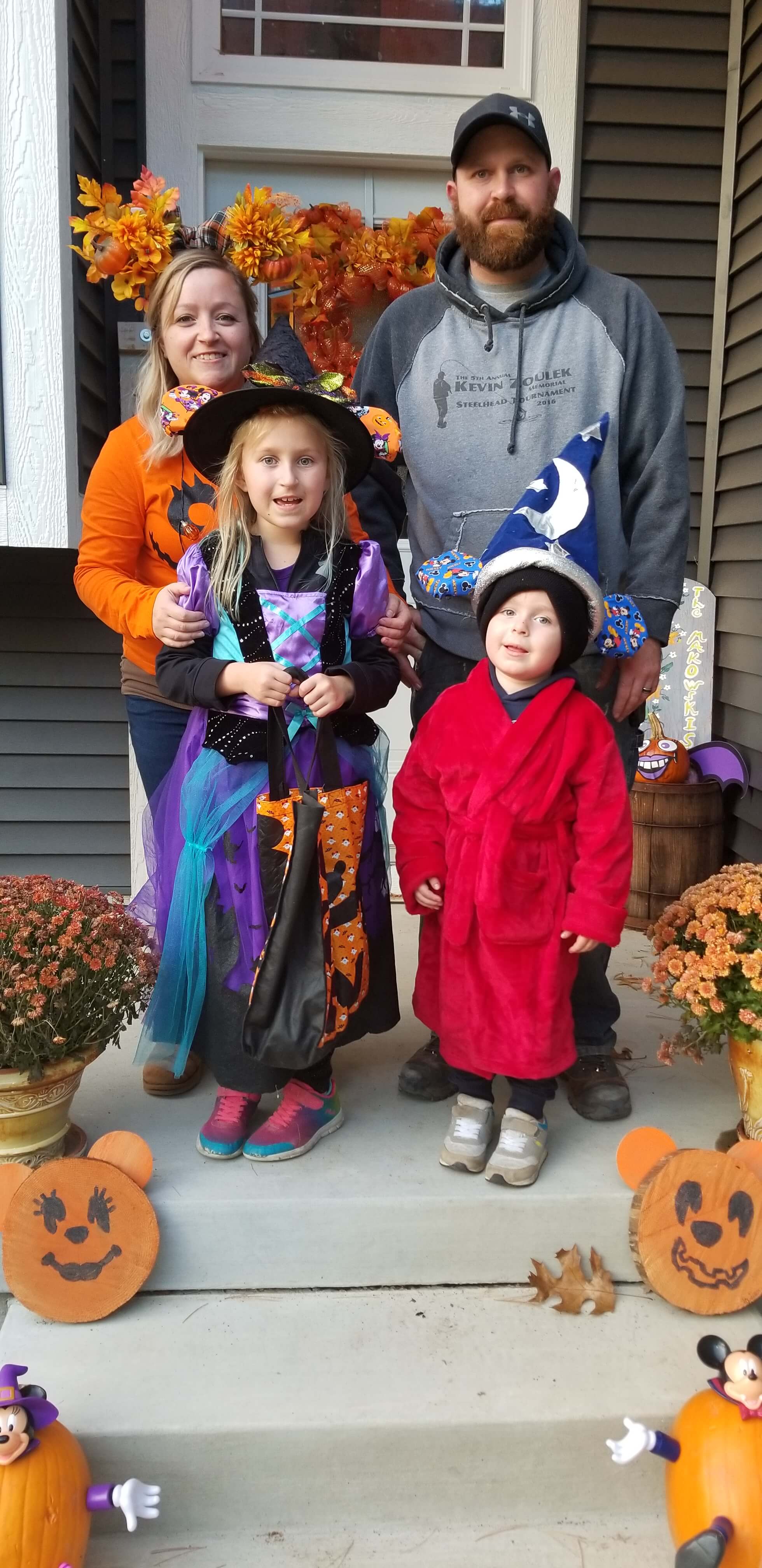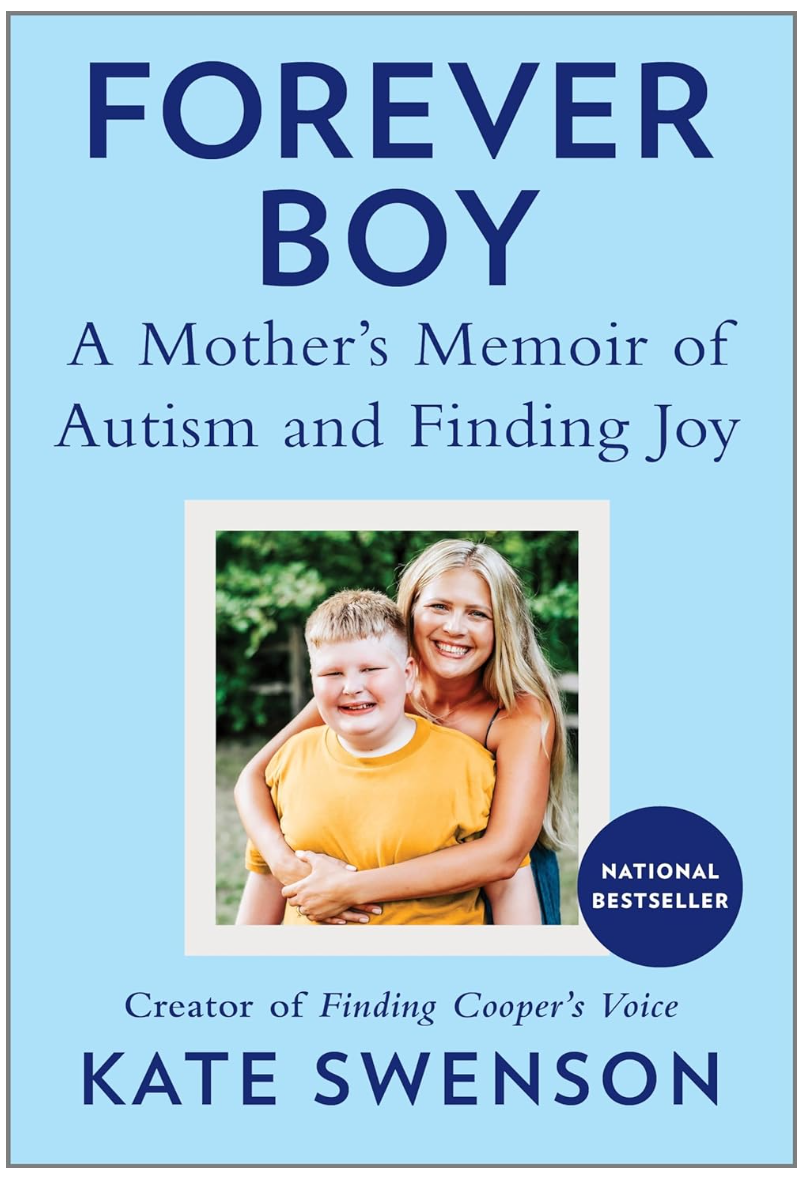Thanking Those that Brought us Answers

Imagine not being able to express every day needs and wants. Behavioral issues become a concern because the child is feeling frustrated.
The parents are equally frustrated and concerned as to why their child is unable to express their wants and needs that are appropriate for their age.
This scenario was what my daughter, myself, and my husband experienced. At 18 months old our daughter was referred to Early On Intervention. After being evaluated a speech therapist diagnosed Haley with Expressive and Receptive Language Disorder.
As time went on, we noticed Haley didn’t like certain foods, clothes, and was sensitive to sound. Her hearing was tested because the speech therapist and I noticed she heard sounds better with different pitches.
Those results came back normal, so we thought well it’s strange, but her hearing isn’t impacting her speech.

During her interaction with Early On they said to watch for signs of Autism but thought she appeared to make good eye contact and showed willingness to be social with others.
Haley went on to enter special education preschool for two years where we continued to see growth in her. She spoke more words and was able to produce 2-3-word phrases by the end of preschool.
In my mind I didn’t view Haley as having a disability I just thought she would catch up with her peers.
Fast forward to 2nd grade, we noticed a pattern of Haley gaining and loosing sounds she previously learned and the gap in her reading and writing was increasing compared to her math scores which was her strength. I also started to notice that Haley was more immature than girls her age.
She engaged with her peers but had a hard time sustaining conversation and reciprocity. At the same time my son was showing language difficulty like my daughter and was referred to Early On.
After time working with my son, they wanted to complete a REED study for autism. It was in that moment I started to question if there wasn’t something more than speech going on with Haley.
I contacted Haley’s Dr. who made a referral to our local community health center to get her medically accessed. The accessor began to tell me that my daughter has autism.
She said based on her scores she has slight impairment in executive functioning and moderate impairment in social skills.
After digesting what I was told and rereading the report I had more questions than answers. I still didn’t understand how Autism impacted Haley.
With needing questions answered I decided to put a request with the school for a REED study. At first, I was denied testing but after writing an appeal that included information from Haley school file and comparing it to the educational criteria for Autism, I was granted the test.
At this point Haley was 8 and in the end of 3rd grade.
Results from the REED study found that Haley had a significant delay in communication, auditory working memory, basic reading and writing, and didn’t have a consistent friend.

The results indicated Haley qualified for Autism though the school’s observations contradicted the rating scales. Ultimately concluding that she wasn’t eligible for Autism Spectrum Disorder under the IDEA act.
After receiving more information on how Autism impacted Haley in the educational setting, I went back to my doctor and asked where do we go from here?
The school granted some classroom accommodations but not additional services other than the speech she qualified under for articulation. After reviewing a stack of documents, she decided to refer her to Occupational therapy, Speech therapy, and to be evaluated by an assessment center called Brains.
Occupational therapist found that Haley had sensory processing disorder, fine motor control, and manual coordination delay. I had an AH-A moment remembering Haley struggled with certain foods, clothes, and was sensitive to sound.
I also understood why she rocked or jumped so much. The reason why she struggled to tie her shoes, button and zip her clothes.
I then received the results from Haley speech therapy and in many ways, I wasn’t surprised where she was at with her sounds though it gave me additional information on how her articulation affects her reading.
Testing results that I was impatiently waiting for from BRAINS finally came and the conclusions made me have another AH-A moment.
After completing their own test and going over lots of data I gave them they concluded Haley qualified for both medical and educational Autism. They also diagnosed her with Auditory Processing Disorder, Dyshonetic Dyslexia, Phonological Disorder, and Anxiety related to performance.
Brains evaluation took all the previous testing Haley’s done along with theirs and put it all in document. Listening to the Dr. explain how her diagnosis impacts her life it made crystal clear sense.
Haley’s Autism was in plain sight. I just needed someone to point it out and acknowledge that for girls the signs can be different.
Today, Haley receives multiple services through the school, rehabilitation facility, and community mental health. Receiving these services have been at times hard to find for Haley’s needs.
We have experienced barriers finding someone to work with Haley that is authorized by her insurance and getting authorization payment for speech and Occupational services.
I am grateful to those that have worked with Haley to her pediatricians, early on team, speech therapist, occupational therapist, teachers and case manager.
By getting answers I have a better understanding of her strengths, weaknesses and how to help her grow.
I continue to fight for eligibility and services through her school. Recently Haley was nominated by her rehabilitation center as pediatric patient of the month.
After a long time coming, I now have hope that Haley will be successful with the right tools and support group.

Written by, Autumn Makowski
My Name is Autumn Makowski I am a stay at home wife and mother to two children with Autism (Haley & Reed), with a passion for advocacy. I have an educational background in social work and on and off work experience with children and adults with developmental disabilities and child welfare.
(Editor’s Note: This article was provided by Autumn Makowski and is part of Cooper’s, ‘I’m Thankful For You’ Campaign.)
Finding Cooper’s Voice is a safe, humorous, caring and honest place where you can celebrate the unique challenges of parenting a special needs child. Because you’re never alone in the struggles you face. And once you find your people, your allies, your village….all the challenges and struggles will seem just a little bit easier. Welcome to our journey. You can also follow us on Facebook and subscribe to our newsletter.

